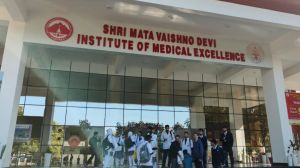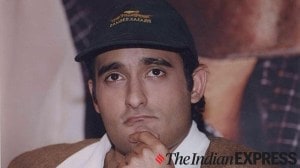Manmohan calls for fiscal restructuring
February 4: There has to be a sharp increase in investment in infrastructural facilities like ports, roads and power, and in social secto...

February 4: There has to be a sharp increase in investment in infrastructural facilities like ports, roads and power, and in social sectors like education and health care if the country aimed at registering a seven to eight per cent growth rate to overcome all poverty-related problems, former Union Finance Minister Manmohan Singh said in Chennai today.
Inaugurating a seminar on Public Expenditure Management and Efficiency8217; organised by the Institute of Public Enterprises and Public Administration, he called for fiscal restructuring on a priority basis to achieve a GDP growth rate of 7 per cent that will create about 10 million jobs a year. Unless job opportunities are created, problems of poverty will persist.
The country has to step up its expenditure on infrastructure from 5.8 per cent to 8 per cent of the GDP to ensure facilities that will meet the requirements of the economy. While about 48 per cent of the population is still illiterate, what is spent on education is not spent efficiently, heregretted.
Agriculture accounts for 64 per cent of the labour force but public investment in agriculture has been going down in recent years leading to serious problems in water management, soil conservation and degradation which posed a major threat to millions of farmers, Manmohan Singh said.
The Government can spend more on physical and social infrastructure if the areas where Government departments and public enterprises cannot function efficiently are privatised.
The alarming aspect of the fiscal system which is becoming unsustainable is that the revenue deficit that indicates current consumption is not controlled even as public debts mount at commercial rates of interest, he said, pointing out that 65 per cent of tax revenue goes to support the interest burden of Rs 75,000 crore per annum.
Among the measures to curtail fiscal deficit is raising the tax to GDP ratio. While direct tax rates have reached the optimum level, indirect taxes can yield more to the exchequer, Manmohan Singh said addingindirect tax structure needs to be reformed and the tax administration at the States as well as Central Government level has to become more efficient so as to enhance the tax to GDP ratio from 16 per cent to 19 per cent.
Arguing against curtailing public expenditure to bring down fiscal deficit, he said 8220;the country has to spend more on investments but less on consumption.8221; But unfortunately as Government patronage comes through spending, the legislators tend to clamour for more expenditure. Most of the grants are passed in the parliament without any discussion, he said.
Manmohan identified reduction of interest rates and of public borrowing as the factors that will bring down expenditure. In this context, he said India cannot afford eight per cent inflation while industrial democracies register only 2 to 3 per cent. However, inflation will come down if the interest rates get reduced.
While privatisation efforts will cut down public debt, defence expenditure cannot be reduced. Nor can the subsidies onfood and fertilisers be cut. But subsidy on power at Rs 12,000 crore per annum can be eliminated and the amount saved together with borrowing can help the country to generate as much as 8,000 MW more power, he said.
When the Fifth Pay Commission submitted its recommendations, it was made clear that the Government will have to reduce its work force by 30 per cent over a period of ten years. But there will be widespread socio-economic discontent if jobs are not created outside the Government, Manmohan Singh cautioned.
Former President R Venkataraman said it was strange that when private sector incurred losses, the Government was asked to take over the losing units. But when the PSUs failed to function profitably, there is consistent demand that the units be sold.
Former Maharashtra Governor C. Subramaniam called for attitudinal change on the part of political leadership and bureaucracy so that the country lived within its means. He emphasised the need for efficient spending which will enable the countryto reach the targets set.
- 01
- 02
- 03
- 04
- 05































